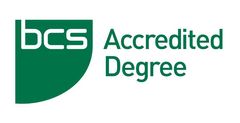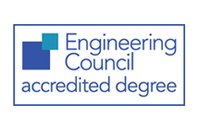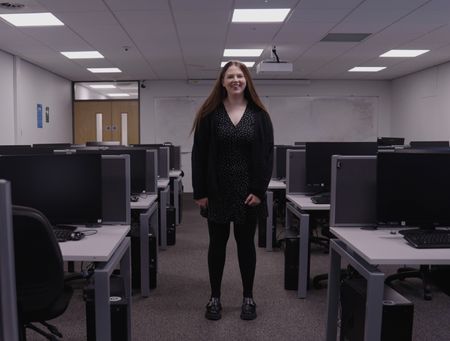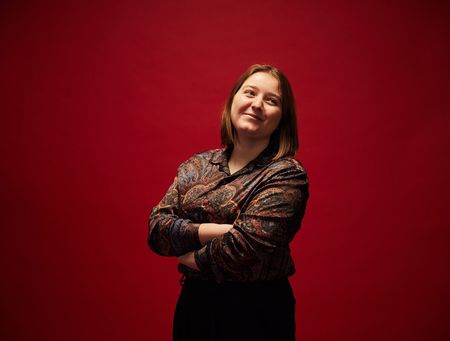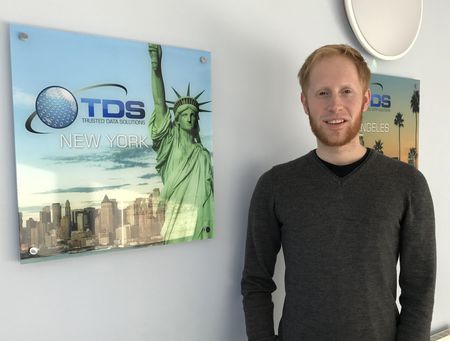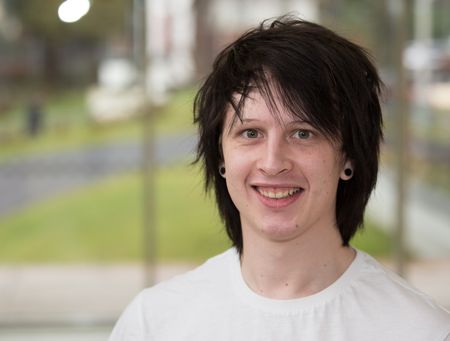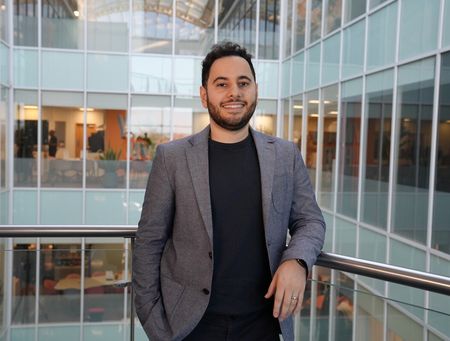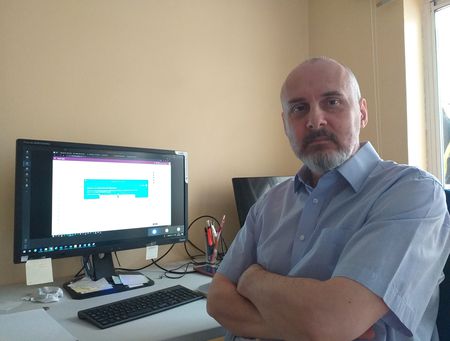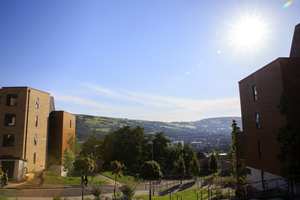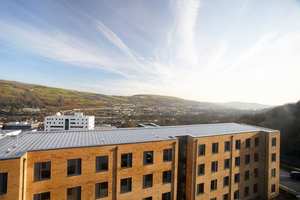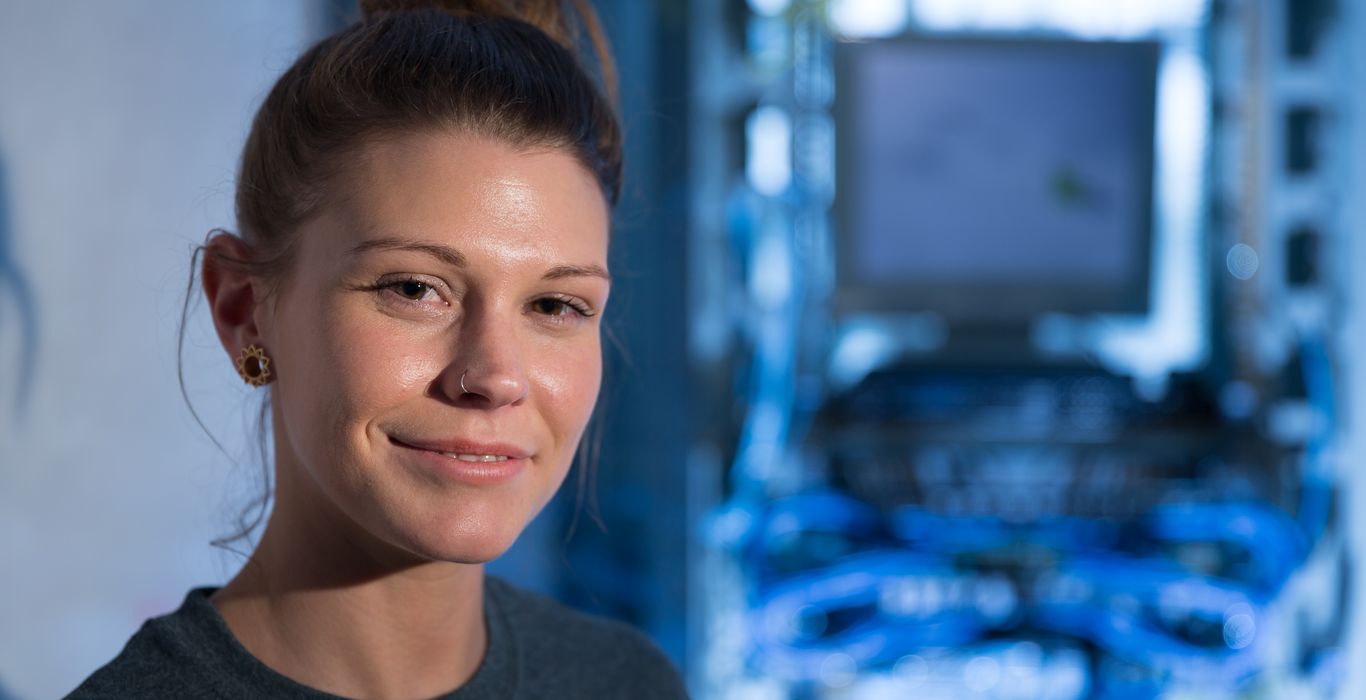
BSc (Hons) Computer Science
Computer Science at USW is ranked top in Wales for student satisfaction National Student Survey 2023
Computer science is a wide field, from its theoretical and algorithmic foundations to cutting-edge development in robotics and intelligent systems.
This BCS-accredited Computer Science degree has been designed in line with professional standards and is your first step towards a career in secure software development. This degree is one of only a very few to be successfully certified by this prestigious organisation. You’ll work on real problems in readiness for employment, developing key skills that will help you keep pace with this rapidly changing field.
If your desire is to become a programmer, then a computer science course is perfect for you. You’ll learn about abstraction,complexity, evolutionary change, sharing of common resources, security and concurrency.
From system functionality to usability and performance, you’ll also be better placed to solve real-life problems with an understanding of how they affect people’s lives.
As a computer scientist, you’ll learn by doing, making use of high-performance computers, and working individually and in teams to produce solutions to tight deadlines, giving you first-hand experience of agile software development.
Top in Wales for Computer Science and Information Systems (Guardian University Guide 2024).
Year One: Computer Science Degree
- C++ Programming
- Computer Systems Concepts
- Professionalism and Employability*
- Information Management, Assurance and Security
- Mathematical Tools for Computation
*This module can be studied in Welsh.
Year Two: Computer Science Degree
- Data Structures and Algorithms with Object Oriented Programming
- Secure Software Development
- Operating Systems Concepts
- Event Driven and Graphical User Interface Programming
- Professional Practice and Employability, Team Based Software Development Workshop
- Supervised Work Experience (Computing) (optional)
- Study Overseas (Computing) (optional)
- Computational Mathematics or Database Development
Year Three: Computer Science Degree
- Individual Project
- Computer Networks
- Robotics and Autonomous Systems (optional) or Mobile Systems and Applications (optional)
- Parallel and Concurrent Programming
- Intelligent Systems
Teaching
The BSc (Hons) Computer Science degree is delivered via approximately 16 hours of teaching in lectures, tutorials and practical sessions every week. You also need to spend four hours per week, per module on your coursework, general reading and other preparation.
Assessment
Types of assessment include examinations, coursework and exercises based on real-life problems.
Accreditations
The BSc (Hons) Computer Science degree is accredited as meeting the requirements for Chartered Information Technology Professional (CITP) and partially meeting the requirements for Chartered Engineer (CEng). Students who subsequently opt to extend their studies and complete the MComp would be accredited as meeting the requirements for Chartered Information Technology Professional (CITP), CITP Further Learning and fully meeting the requirements for Chartered Engineer (CEng).
This degree has been accredited by BCS, The Chartered Institute for IT. Accreditation is a mark of assurance that the degree meets the standards set by BCS. An accredited degree entitles you to professional membership of BCS, which is an important part of the criteria for achieving Chartered IT Professional (CITP) status through the Institute.
Placements
As part of your computer science degree, we strongly recommend you spend up to a year working in industry in the UK or abroad. As well as an opportunity to use your knowledge in the real world, work experience will boost your CV and can even lead directly to employment.
You could spend up to a year working in industry as part of your course, either in the UK or abroad. You can also take part in live projects and taster weeks, or choose a shorter three-month placement. Recent placements include E-Finity, IBM, Fujitsu, GCHQ, and the Welsh Government.
Facilities
Our facilities are at the cutting edge of computer development, meaning you’ll use the latest technologies in high-spec labs. You’ll also find dedicated spaces on campus for computing students, including Windows, Apple Mac, Linux and Networking suites, all with the latest software.
Lecturers
Information about your main teaching team and their research interests can be found on the Computer Science and Artificial Intelligence Paradigms (CSAIP) website.
We regularly revalidate courses for quality assurance and enhancement
At USW, we regularly review our courses in response to changing patterns of employment and skills demand to ensure we offer learning designed to reflect today’s student needs and tomorrow’s employer demands.
If during a review process course content is significantly changed, we’ll write to inform you and talk you through the changes for the coming year. But whatever the outcome, we aim to equip our students with the skillset and the mindset to succeed whatever tomorrow may bring. Your future, future-proofed.
Contextual offers
We may make you a lower offer based on a range of factors, including your background (where you live and the school or college that you attended for example), your experiences and individual circumstances (as a care leaver, for example). This is referred to as a contextual offer and we receive data from UCAS to support us in making these decisions. USW prides itself on it’s a student experience and we support our students to achieve their goals and become a successful graduate. This approach helps us to support students who have the potential to succeed and who may have faced barriers that make it more difficult to access university. Here is a link to our Contextual Admissions Policy.
Other qualifications and experience
We can also consider combinations of qualifications and other qualifications not listed here may also be acceptable. We can sometimes consider credits achieved at other universities and your work/life experience through an assessment of prior learning. This may be for year one entry, or advanced entry to year two or three of a course where this is possible.
To find out which qualifications have tariff points, please refer to the UCAS tariff calculator.
If you need more help or information or would like to speak to our friendly admissions team, please contact us here
Typical A-Level Offer
BBC
Typical Welsh BACC Offer
Pass the Advanced Welsh Baccalaureate Diploma with Grade C in the Skills Challenge Certificate and BB at A Level.
Typical BTEC Offer
BTEC Extended Diploma Distinction Merit Merit.
Typical Access to HE Offer
Pass the Access to HE Diploma and obtain a minimum of 112 UCAS tariff points
Additional Requirements
GCSEs: The University normally requires a minimum 5 GCSEs including Mathematics/Numeracy and English at Grade C or Grade 4 or above, or their equivalent, but consideration is given to individual circumstances.
International Entry Requirements
We also welcome international applications with equivalent qualifications. Please visit the country specific pages on our international website for exact details.
English Requirements
In general, international applicants will need to have achieved an overall IELTS grade of 6.0 with a minimum score of 5.5 in each component.
However, if you have previously studied through the medium of English IELTS might not be required, but please visit the country specific page on our international website for exact details. If your country is not featured please contact us.
Full-time fees are per year. Part-time fees are per 20 credits. Once enrolled, the fee will remain at the same rate throughout the duration of your study on this course
August 2024 - July 2025 Fees
Full-time UK: £9000
Full-time International: £15260
August 2025 - July 2026 Fees
Full-time UK: TBC
Full-time International: TBC
Student Perks
At the University of South Wales, you’re investing in so much more than a degree. We strive to provide our students with the best possible experience, no matter what you chose to study. Whether it’s access to top of the range mac books and PCs, state-of-the-art facilities packed with industry-leading equipment and software, masterclasses and events led by industry experts, or a wide range of clubs and societies to meet likeminded people, better tomorrows start with extra perks.
Each course also has their own unique student benefits to prepare you for the real word, and details of these can be found on our course pages. From global field trips, integrated work experience and free course-related resources, to funded initiatives, projects working with real employers, and opportunities for extra qualifications and accreditations - at USW your future, is future-proofed.
Click here to learn more about student perks at USW.
Additional Costs
As a student of USW, you’ll have access to lots of free resources to support your study and learning, such as textbooks, publications, online journals, laptops, and plenty of remote-access resources. Whilst in most cases these resources are more than sufficient in supporting you with completing your course, additional costs, both obligatory and optional, may be required or requested for the likes of travel, memberships, experience days, stationery, printing, or equipment.
Funding
Funding to help pay for (or cover) course tuition fees and living costs
Whilst you’re studying, you’ll have two main financial obligations – tuition fees and living costs. There’s lots of financial help available from the University of South Wales and external funding sources, that may provide loans (which have to be paid back) and grants, scholarships and bursaries (that don't).
To learn about course fees, funding options, and to see if you are eligible for financial support, visit our Fees and Funding pages.
Faculty of Computing, Engineering and Science Travel Bursary
The Faculty of Computing, Engineering and Science offers a travel bursary of £500 which is available to all students undertaking an undergraduate sandwich degree. Find out more.
UK students
Apply via UCAS if you are a UK residing applicant, applying for year one of a full-time undergraduate degree, Foundation Year, Foundation Degree or HND and you have not applied through UCAS before. If you are applying to study part-time, to top up your Foundation Degree or HND, or to transfer to USW from another institution, please apply directly.
International and EU students
Apply directly to the University if you live outside the UK.
Computers are fundamental to many different industries, so graduates with a Computer Science degree you can apply your skills to many fields. Computer programmers and engineers mainly work for large computer companies. Microsoft, IBM, Intel and Hewlett-Packard all rely on an army of computer scientists to produce and maintain their technology. Even within these companies, graduates with a Computer Science degree can work in a broad variety of areas and in a number of jobs. Product development entails designing, building and testing the latest products, so skills in software programming and design are vital.
Many of our graduates progress on to a computing PhD or research degree.
Computing and Cyber Employability Guide
Our Employability Guide has all the information you need to help you prepare for a career in computing and cyber.
From hands-on work experience and industry links to our passionate academics and different study routes, we have you covered.
Hear from USW graduates as you learn about how you can get your career started, including how you will develop in-demand skills using all the latest software and technology.
Our Careers and Employability Service
As a USW Computer Science student, you will have access to advice from the Careers and Employability Service throughout your studies and after you graduate.
This includes: one-to-one appointments from faculty based Career Advisers, in person, over the phone or even on Skype and through email via the "Ask a Question" service. We also have extensive online resources for help with considering your career options and presenting yourself well to employers. Resources include psychometric tests, career assessments, a CV builder, interview simulator and application help. Our employer database has over 2,000 registered employers targeting USW students, you can receive weekly email alerts for jobs.
Our Careers service has dedicated teams: A central work experience team to help you find relevant placements; an employability development team which includes an employability programme called Grad Edge; and an Enterprise team focused on new business ideas and entrepreneurship.

